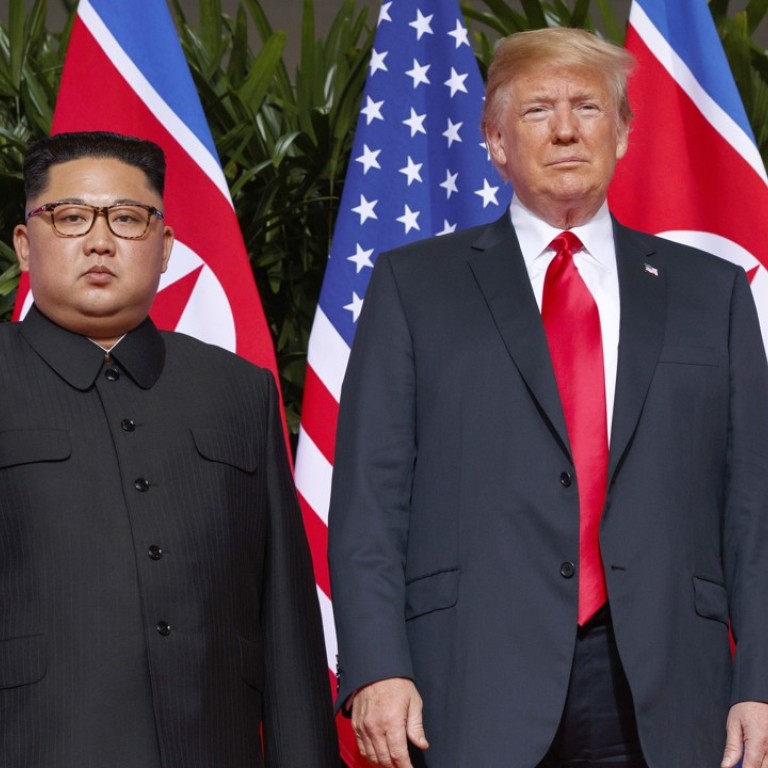
A second Donald Trump-Kim Jong-un summit? They don’t even agree on what the first one meant
- Donald Kirk says North Korea and the US may not agree on what ‘denuclearise’ means, but is there harm in meeting again? The answer is yes, actually, if these summits give the impression that diplomacy has been tried and did not work
In Washington, Seoul and maybe even Pyongyang, summitry is in the air. Excitement and speculation are rife. Everyone is talking about talking. How about talks between the leaders of the two Koreas, between each of them and the US president, or maybe a meeting of all three together?
Moon, meanwhile, would love to receive Kim in Seoul. The mere idea of the North Korean leader deigning to visit the South Korean capital is mesmerising. It was all well and good for him to step across the line at their first summit in April, but that gesture was really symbolic, a photo-op.
Three South Korean presidents have gone to Pyongyang – Kim Dae-jung in 2000, Roh Moo-hyun in 2007 and Moon in September. Kim’s late father, Kim Jong-il, promised return visits to the South but never made it. There’s been talk of Kim Jong-un getting to Seoul this month, but time is running short.
Trump may think he reached a real deal with Kim at their Singapore summit, but their joint statement on “denuclearisation” of the Korean peninsula had no real meaning. “North Korea has little or no intention of giving up its nuclear weapons,” as Haass noted at a symposium that I attended in Washington. “It is unlikely the problem will be resolved.”
If that’s the case, what’s the harm of the two leaders at least sitting down and talking things over? A burst of “flowery” language, in Haass’s view, may do more harm than good. “I don’t want people to say we tried diplomacy and failed,” said Haass. “Talking can become a cover that gives the impression of progress.”
Worse yet, amid the talking, North Korean physicists and engineers and technicians are sure to go on developing more and better nuclear weapons and missiles, even if they haven’t tested any for more than a year. There’s no way the North is going to provide a list, as the Americans have been asking, of the places they’re harbouring facilities, much less provide an inventory of all the warheads they’ve produced.
So what would come from another Trump-Kim summit? A “peace declaration”? If Kim did see Trump again, he would like them both to sign off on a statement saying the Korean war was over, after which North Korea could rev up demands for the withdrawal of US troops from the South.
Donald Kirk is the author of three books and numerous articles on Korea

